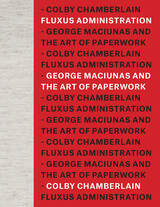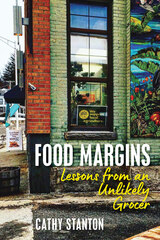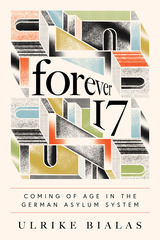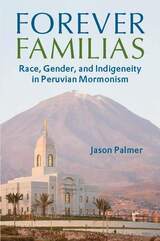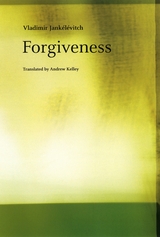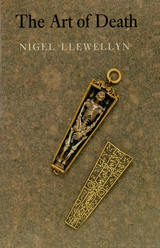
Illustrated and explained in this book are an array of little-known objects and images such as death's head spoons, jewels and swords, mourning-rings and fans, wax effigies, church monuments, Dance of Death prints, funeral invitations and ephemera, as well as works by well-known artists, including Holbein, Hogarth and Blake.

Although Richard Hooker (1554–1600) is now known principally as the author of the Laws of Ecclesiastical Polity, in his lifetime the Tractates and Sermons brought him greater notoriety. Hooker’s views on justification, the perseverance of faith, and the relationship of the Church of Rome to the reformed Church of England were widely reported, and texts of the tracts were extensively circulated in manuscript.
Thanks to the meticulous editing of Laetitia Yeandle, Curator of Manuscripts at the Folger Shakespeare Library, the contemporary impact of these debates can now be appreciated for the first time. These tracts provide a unique perspective on the turbulent world of late Elizabethan theology. In addition, they lay the doctrinal foundations of the Laws of Ecclesiastical Polity itself and—with the excellent commentary of Egil Grislis, Professor of Theology at the University of Manitoba in Winnipeg, enable us to trace the intellectual formation of sixteenth-century England’s most innovative and provocative theologian.
The volume includes a newly discovered letter; three newly attributed sermon fragments; and analysis by P. F. Forte of Hooker’s distinctive preaching style.

The writings of Richard Hooker are of central interest to those studying English Renaissance thought and literature. In this, the third volume of a much-needed critical edition of the Works of Richard Hooker, are the posthumous books of the Laws of Ecclesiastical Polity. Hooker planned the Laws in eight books, but he died shortly after publication of Book Five. Books Six, Seven, and Eight, which contain his analysis of jurisdiction, episcopacy, and the royal supremacy, are here transcribed from versions that have the most authority. The volume also includes Hooker’s autograph notes toward those texts (brought to light by P. G. Stanwood in the course of his research) and the contemporary notes by George Cranmer and Edwin Sandys on a lost draft of Book Six. Mr. Stanwood’s introduction lays to rest all doubts about the authenticity of the last three books as we have them, doubts current since publication of Walton’s Life of Hooker in 1662.
This edition, sponsored by the Folger Library, is providing authoritative texts to serve as a basis for the scholarly reappraisal of Richard Hooker’s writings that is presently underway.

Richard Hooker is the first major voice of Anglican theology, and his defense of the Elizabethan Church against the attacks of the Puritans set the prevailing tone of Anglicanism for centuries to follow. Through his eloquent treatise on ecclesiastical law the medieval political thought of Thomas Aquinas became a part of the English political heritage, to be used by such writers as Locke, Burke, and Coleridge. The Laws of Ecclesiastical Polity is also a primary statement in English of a theory of natural law. Finally, we must turn to Hooker if we are to understand the intellectual background of the Renaissance, for he luminously sets forth the ethical, political, and religious assumptions of his age.
The Folger Library has answered a long-felt need in sponsoring this critical, old-spelling edition of Hooker’s Works, prepared with all the expertise modern scholarship can bring to bear. Six scholars share the editorial responsibility, consulting their eighteen-member Board of Advisers as necessary. The texts for the edition are based on fresh transcriptions of the earliest and most authoritative documents, in many cases manuscripts written or corrected by Hooker himself or contemporary transcripts of these. The critical apparatus for each text records substantive variants among the authoritative documents as well as departures in accidentals from the copy text. The aim of the apparatus is to enable the interested reader to reconstruct the authority underlying the text.
The Preface and Books I–V of the Laws of Ecclesiastical Polity, Volumes I and II of this edition, represent all of Hooker’s work published in his lifetime. These volumes were prepared by Georges Edelen, Professor of English at Indiana University, and W. Speed Hill, Associate Professor of English, Herbert H. Lehman College, City University of New York.

“Samuel Wilberforce,” writes Standish Meacham, “is best remembered as Soapy Sam, the bishop who debated Huxley on evolution and lost. He always insisted his nickname derived from the fact that though many times in hot water he emerged in every case with clean hands. Others had a less flattering explanation. They believed he was inordinately ambitious and that he trimmed to a line dictated by ambition.”
In this volume Meacham presents the first scholarly biography of Wilberforce, a prominent bishop in the Church of England from 1845 to 1873. Drawing upon source materials only recently made available to scholars, the author traces through correspondence and diaries the life of this outstanding Victorian Churchman, describing at the same time the theological temper of the period. Meacham’s emphasis, however, is on Wilberforce as a human being. He reveals his subject in a variety of roles: as favorite, for a time, of Victoria and Prince Albert; as staunch Churchman; as debater in the House of Lords; as a conscientious bishop traveling from one end of his diocese to the other, exerting his considerable energies to raise church funds, encourage his often dispirited clergy, and admonish his flock; and as a sometimes vigorous adversary of Tractarianism.
During the times in which Wilberforce lived, especially the last decade or so of his life, the old orthodoxies were losing their force and new discoveries and modes of thought were breaking down religious certainties. Meacham describes the spiritual struggle Wilberforce waged against Darwinism and higher criticism. He depicts also the private struggle of an essentially good man against the temptations of power and ambition, and the difficulties entailed in the dual role of Churchman and member of the House of Lords whose associates were almost wholly of the privileged class.
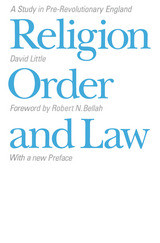
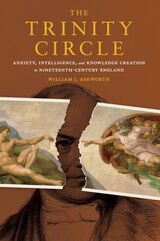
The Trinity Circle explores the creation of knowledge in nineteenth-century England, when any notion of a recognizably modern science was still nearly a century off, religion still infused all ways of elite knowing, and even those who denied its relevance had to work extremely hard to do so. The rise of capitalism during this period—embodied by secular faith, political radicalism, science, commerce, and industry—was, according to Anglican critics, undermining this spiritual world and challenging it with a superficial material one: a human-centric rationalist society hell-bent on measurable betterment via profit, consumption, and a prevalent notion of progress. Here, William J. Ashworth places the politics of science within a far more contested context. By focusing on the Trinity College circle, spearheaded from Cambridge by the polymath William Whewell, he details an ongoing struggle between the Established Church and a quest for change to the prevailing social hierarchy. His study presents a far from unified view of science and religion at a time when new ways of thinking threatened to divide England and even the Trinity College itself.
READERS
Browse our collection.
PUBLISHERS
See BiblioVault's publisher services.
STUDENT SERVICES
Files for college accessibility offices.
UChicago Accessibility Resources
home | accessibility | search | about | contact us
BiblioVault ® 2001 - 2024
The University of Chicago Press


